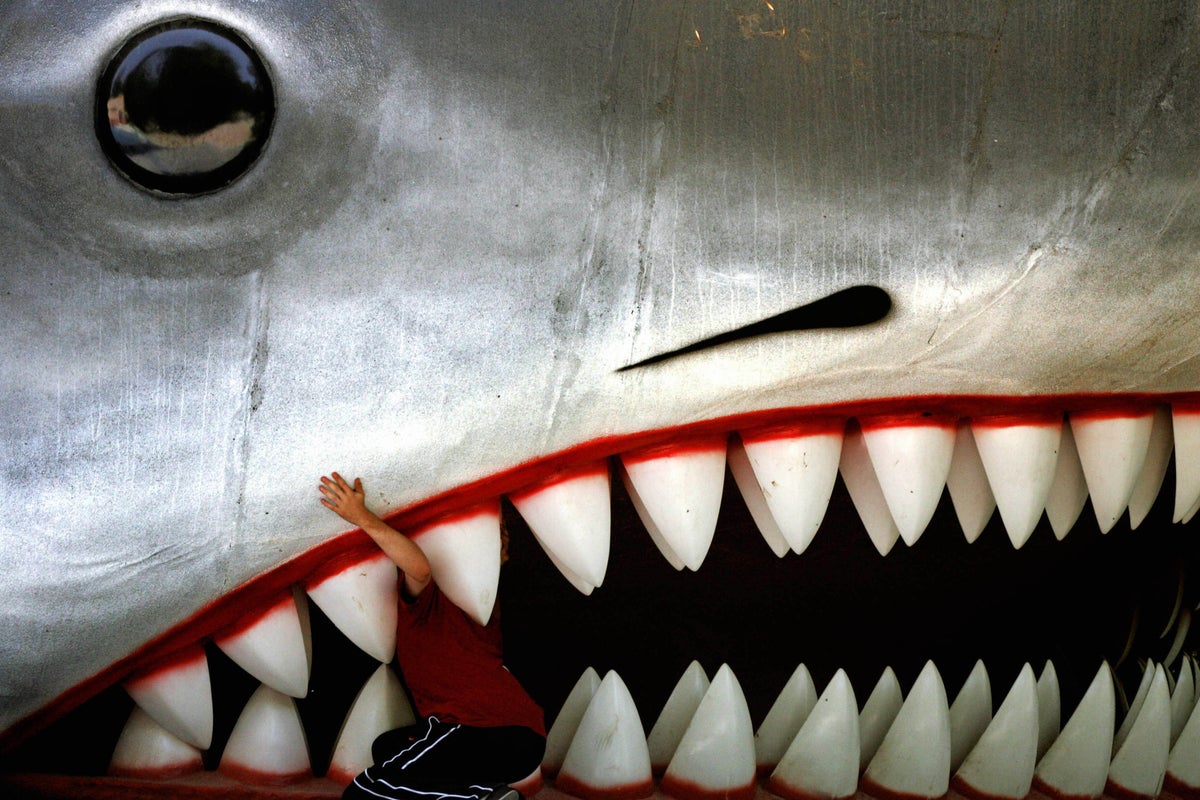Shark Expert Celebrates 'Jaws' Anniversary: Flawed Film That Saved Sharks

When Steven Spielberg's hugely successful movie Jaws opened in theatres in June 1975, it kindled a worldwide panic about shark bites that led many sharks to die by human hands.
But as the original summer blockbuster nears its 50th anniversary, an expert on the politics of shark attacks has said it also deserves qualified praise for getting more people involved with shark conservation.
Jaws "offered rationale for and diminished resistance to, every subsequent anti-shark public policy,” noted Chris Pepin-Neff, a public policy lecturer from the University of Sydney. in an article for Scientific American on Monday .
At the age of 50, despite this, Jaws It is also a tribute to sharks, sparking an interest that has led to over two generations of new shark researchers," he states.
For almost two decades, Pepin-Neff has been examining how politicians in Australia and elsewhere react to shark incidents, particularly focusing on how they use cinematic references to support their decisions—a trend identified by Pepin-Neff. calls the " Jaws Effect.”
They argue Such measures like shark culls, protective meshing, and drum lines offer minimal protection for swimmers and cause significant damage to marine life, reinforcing the misguided notion that oceans can be controlled by human regulations.
Pepin-Neff noted that the film initially made waves for depicting shark bites as deliberate “attacks” on swimmers. He added that this fabricated portrayal of the human-shark dynamic ranks among the most triumphant storytelling successes in cinema history.
He observes that people fully embraced this narrative of deliberate intent, leading them to view each shark bite as effectively a murder, with every shark seen as a possible killer, and the beach becoming the setting for an offense committed by a monstrous predator against unsuspecting swimmers.
Over the past several decades, shark numbers have plummeted significantly, as depicted in the film reportedly inspired A brief surge of competitive angling along the U.S. coastline.
Nevertheless, it's uncertain how much Jaws was related to the general decrease, as sharks are caught commercially at much higher rates to produce shark fin soup than they are targeted for sports fishing – or "retaliation" or out of fear.
In either case, Pepin-Neff also points out that numerous individuals who were part of the film’s production later turned into staunch promoters of shark conservation, including diver and filmmaker Valerie Taylor and scientific advisor Leonard Compagno.
Peter Benchley, who penned the initial book that Spielberg's movie was based on He often voiced his support for sharks and authored a book contending that humans cause these creatures more harm than they do us.
"Please, for the love of nature, refrain from launching a reckless attack on an endangered creature just because it made a harmless—albeit heartbreaking—error," he penned. In a public letter dated 2000 , encouraging Australians not to harm a shark that had recently claimed a life of a human.
This wasn’t an erratic shark, driven mad by tasting human flesh and destined to attack repeatedly. These kinds of animals aren’t real, even though you may have concluded otherwise. Jaws .”
Spielberg too has mentioned he "sincerely laments" the effect Jaws had on sharks , jesting that they could possibly remain “upset with him due to the feeding frenzy involving crazed sports anglers that occurred following 1975.”
“Nowadays, humans have developed a greater respect for all types of sharks, including those found close to shore,” concluded Pepin-Neff. “Some credit for changing the public perception that ‘it’s safe to return to the water’ goes to this shift.” Jaws.
Since 1986, The Independent has been advocating for what they stand behind, rather than following directives, guided by their core values of honesty, inclusivity, creativity, and self-reliance.
Post a Comment for "Shark Expert Celebrates 'Jaws' Anniversary: Flawed Film That Saved Sharks"